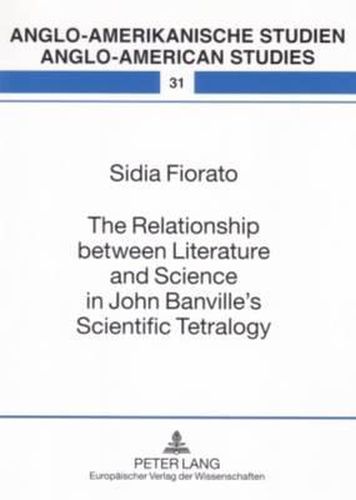Readings Newsletter
Become a Readings Member to make your shopping experience even easier.
Sign in or sign up for free!
You’re not far away from qualifying for FREE standard shipping within Australia
You’ve qualified for FREE standard shipping within Australia
The cart is loading…






Starting from the debate between the two cultures, the book analyzes the relationship between literature and science in the last years of the twentieth century in the light of scientific theories which universally underline both their indeterminacy and their lack of universal values (Relativity Theory, Quantum Mechanics, the Uncertainty Principle, Chaos Theory). Scientific theories are echoed in literary texts but also a reverse influence from literature to science has taken place. In his scientific tetralogy John Banville analyzes the figures of those scientists who contributed to a paradigm shift in the world view from the early modernity to the present. His interest is not exclusively focused on epistemology but rather on the creative mind of the scientist. Science appears to follow the same epiphanic creative process as literature in its understanding of, and theorizing upon, an enigmatic sort of reality.
$9.00 standard shipping within Australia
FREE standard shipping within Australia for orders over $100.00
Express & International shipping calculated at checkout
Starting from the debate between the two cultures, the book analyzes the relationship between literature and science in the last years of the twentieth century in the light of scientific theories which universally underline both their indeterminacy and their lack of universal values (Relativity Theory, Quantum Mechanics, the Uncertainty Principle, Chaos Theory). Scientific theories are echoed in literary texts but also a reverse influence from literature to science has taken place. In his scientific tetralogy John Banville analyzes the figures of those scientists who contributed to a paradigm shift in the world view from the early modernity to the present. His interest is not exclusively focused on epistemology but rather on the creative mind of the scientist. Science appears to follow the same epiphanic creative process as literature in its understanding of, and theorizing upon, an enigmatic sort of reality.